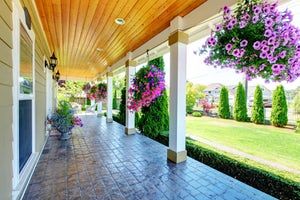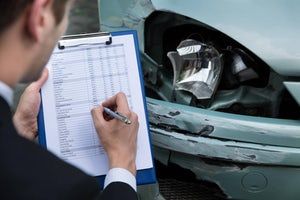How many times a day do you have to call to ensure that your mom or dad has taken their meds? Probably five or six times. Sometimes, you’re forced to ask whether they’re sure they’ve done all they’re supposed to. The situation gets dire when seniors have dementia or Alzheimer's disease. You have to remind them to do almost everything, including eating.
With advancements in technology, it has become more comfortable for you or your parents to age gracefully in the comfort of your home.
A study conducted at Harvard University shows that the number of seniors will nearly double from 6.9 million to 13.4 million in the US between 2015 and 2035. Baby boomers are living longer thanks to advancements in medicine. With the increase in the number of seniors, there will be fewer young people to take care of them. This is where technology comes in.
Below are five devices that you can use to make your senior parents, or yourself, stay safe at home.
1. Smart Sensors
There are all sorts of sensors in the market today to warn senior citizens of potential dangers. Smart stove alarms are designed to warn of potential dangers in the kitchen. The stoves not only detect danger when smoke is produced, but they also sound an alarm before the production of toxic gases in the kitchen. This way, seniors can prevent potential fire hazards.
There are also smart sensors to detect water and gas leaks. Additionally, smart bath sensors detect potential overflows and shut off the water before the tub is overfilled.
2. Medical Alert Systems
As a child of older adults, you’ll always be wondering whether they have taken their meds. These devices offer visual or audible alerts to prompt seniors to take their medication. Additionally, these systems can send alerts to caregivers whenever seniors retrieve their medication. This way, the caregiver and the seniors will have peace of mind.
Medical alert systems come in the form of wearable devices such as watches, bracelets, necklaces, and more. The devices are designed to monitor the activities of seniors and alert them when they need to do something. Some wearable devices monitor the heart rate and alert caregivers when something’s amiss. MobileHelp is one of the most popular medical alert systems on the market. It has a built-in medical alert help button, GPS tracking, and a few health-monitoring apps. Other popular medical alert systems include: Greatcall, Medical Guardian, LifeAlert, and Bay Alert Medical.
3. Motion Activated Indoor Monitors
When seniors are fumbling around in the dark, they might trip and fall or knock into furniture in the house. Motion activated lights are some of the most common of these devices. These lights can be installed and customized to the routines of seniors. Other motion sensors can be installed on the entranceway to remind seniors to lock the door or to remind them to check the identity of anyone knocking on the door before opening it.
Other smart sensors come in the form of smart doorbells. These doorbells provide a video picture of anyone knocking on the door. This way, seniors can decide whether or not to open the door.
Lastly, there are smart home security systems that are designed to automatically arm security systems, lock doors, and alert caregivers when there’s a security issue.
4. Virtual Assistants
Artificial intelligence has made it easy for seniors to age at home. These small voice-activated speakers offer helpful information and companionship, an easy way for seniors to connect to the outside world.
These virtual assistants are connected to other devices in the house, including sensors, smart lights, door locks, doorbells, and many other gadgets that seniors can control with their voices. Today, there are more virtual assistants besides Amazon’s Alexa. These assistants are customized to the daily activities of seniors and can even ‘read’ moods and give suggestions to seniors.
5. Emergency Response Systems
Emergency response systems, also called telemedicine systems, are designed to call for help when a senior needs medical help. The senior only needs to press a button, and their caregiver or a doctor/nurse will be there to offer help. These systems ensure that a senior gets medical help when they need it most.
With these response systems, doctors will offer medical help to seniors in the comfort of their homes. This way, it’s easier to curb seniors’ medical conditions before they become serious.
With the above smart tech devices, seniors may not need a nursing home.
Author Bio: Anna has been a primary caregiver for her mother with dementia. She's passionate about finding the best resources for caregivers and families of people with dementia. HomeSecurityHeroes.com is Anna's blog.
Source:











